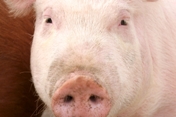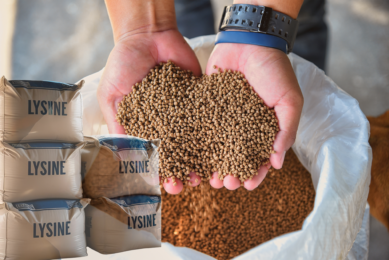Dutch focus on finisher feed and health status

Dutch scientists have started a four-year research in March, into specified finisher feeding for animals with a different health status.
The research will be carried out by the Wageningen University and Research Centre’s Animal Sciences Group and is carried out on behalf of the Dutch Product Board for Livestock and Meat and the Product Board Animal Feed. Key in the project is to determine the effect of an animal’s health status on finisher nutrition requirements – with a special emphasis on animo acids and energy.
It is expected that, by supplying feed tailor made to the animal’s health status, animal performance and feed utilisation can be improved, and nitrogen excretion can be lowered.
In case pigs are affected by pathogens, their immune system will be activated. This process can greatly influence both pigs’ protein and energy requirements. Data are limited, however, as to the effect of the animal’s health status on the amino acid requirements and the relationship between protein and energy in pig feed.
First phase
In the project’s first phase new techniques will be developed to determine the pigs’ amino acid requirements, both in a research environment and in practice. These techniques will help determine the effect of the health status (sub-optimal, conventional, high health status) on the finisher energy and amino acid requirements. The researchers thus hope to acquire more knowledge about the variation in energy and amino acid requirements in finishers with a different health status.
This knowledge can be used to formulate new compound feeds with adapted amounts of amino acids, depending on the finishers’ health status. These feeds will be evaluated at the university’s test farm in Sterksel, in the south of the Netherlands.
Related websites:
Wageningen University and Research Centre (WUR)
Animal Sciences Group
Dutch Product Board for Livestock and Meat
Dutch Product Board Animal Feed











